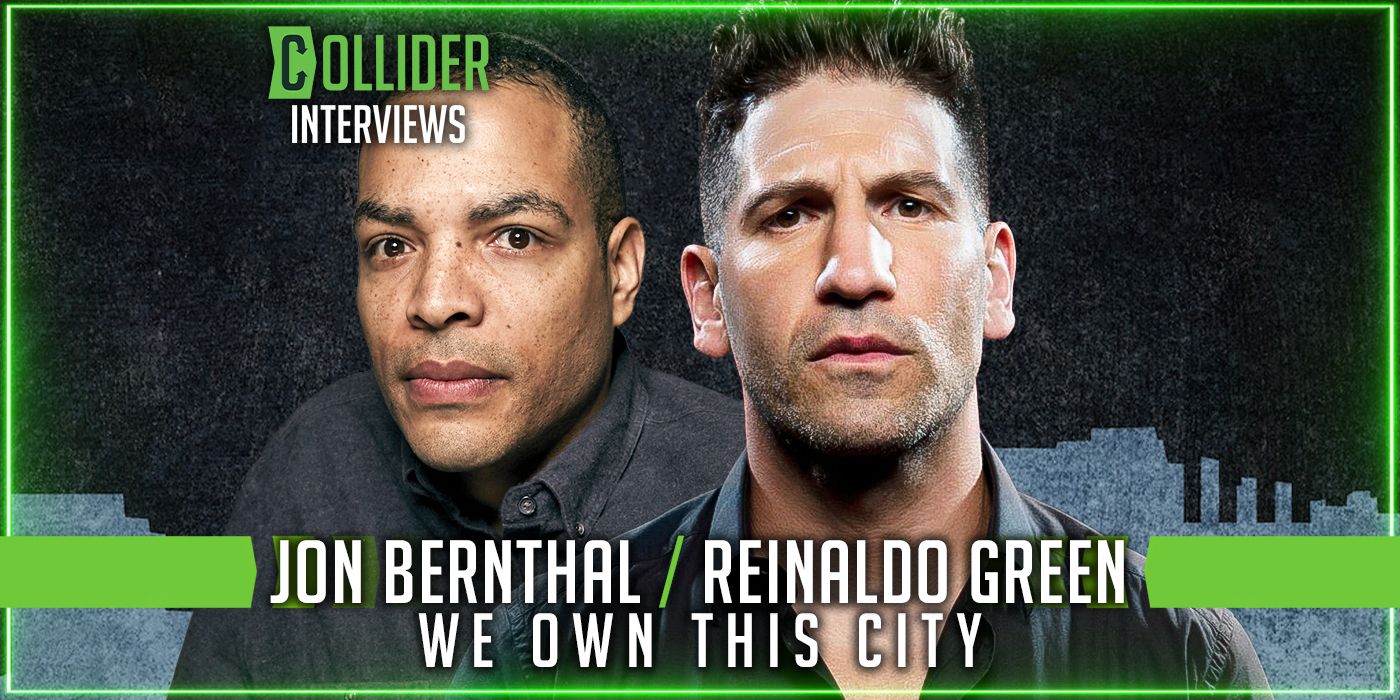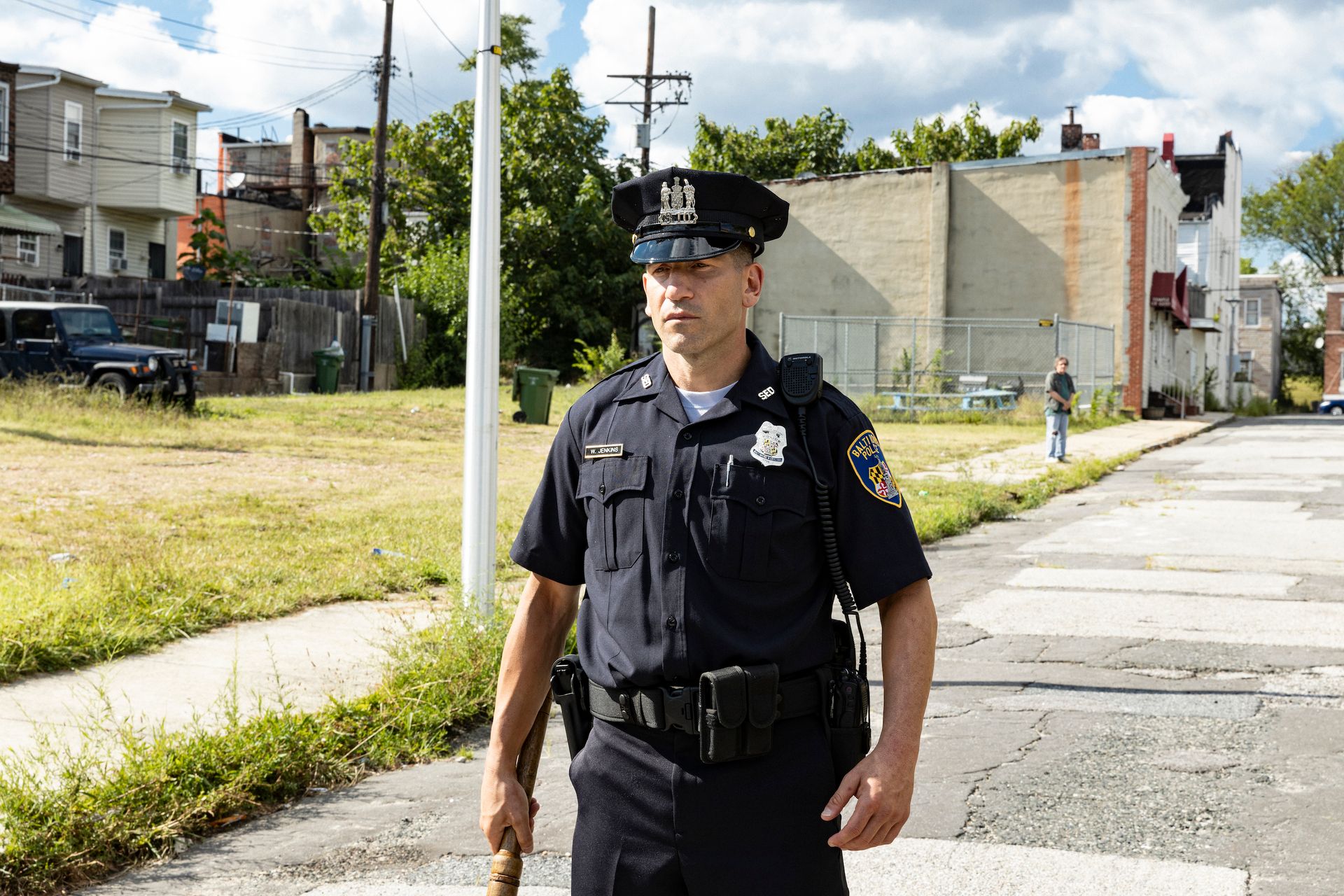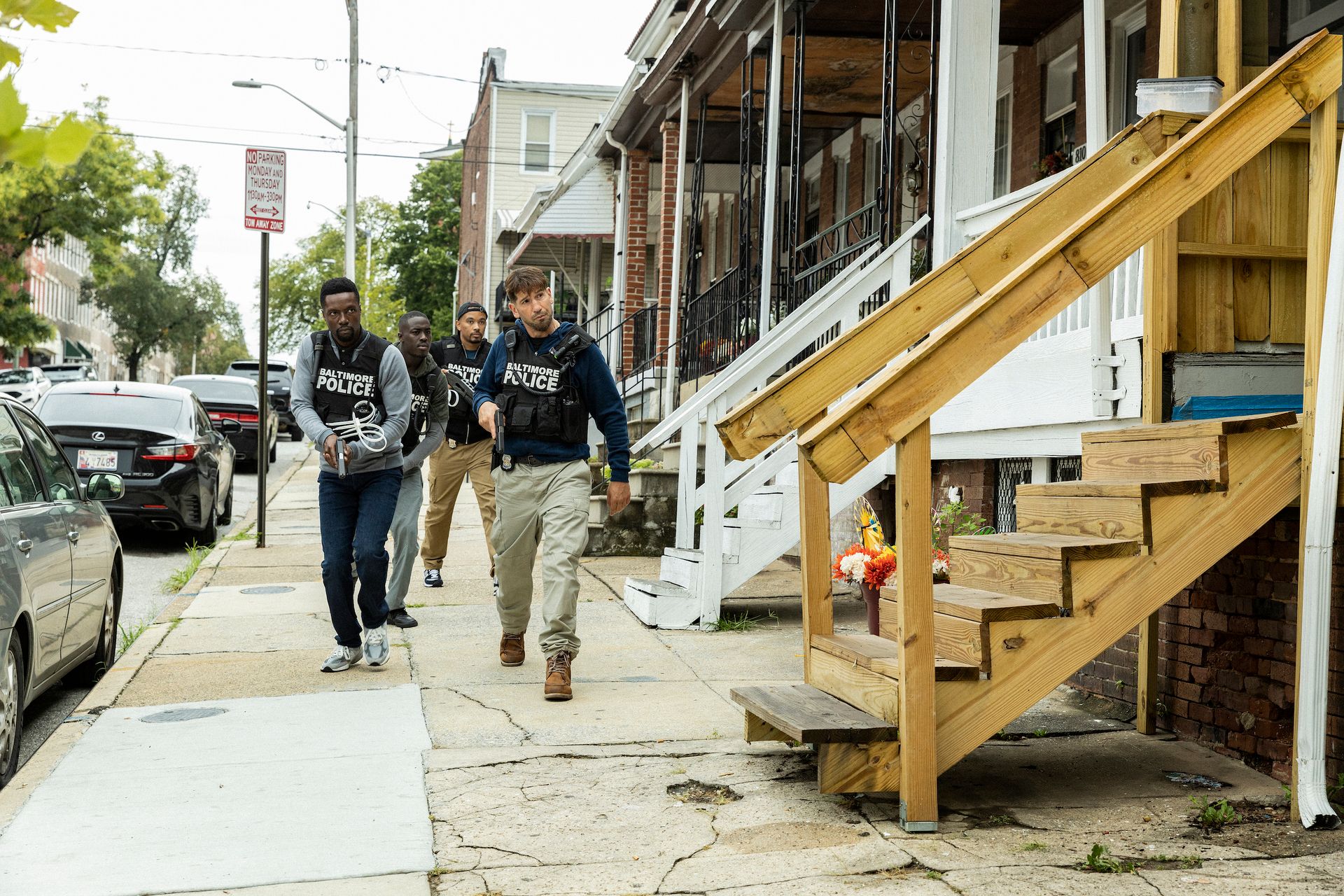Editor’s note: The following interview includes some spoilers for We Own This City.From executive producers George Pelecanos and David Simon, and based on the book by Baltimore Sun reporter Justin Fenton about the corruption that led to the collapse of the Baltimore Police Department’s Gun Trace Task Force, the HBO six-episode limited series We Own This City illustrates what happens when results are prioritized over actual police work. After decades of a relentless drug war that resulted in mass incarceration, Sgt. Wayne Jenkins (Jon Bernthal) was at the center of the unit that went rogue, brutally pursuing citizens and drug dealers for their own gain.
During this interview with Collider, Bernthal, and director/executive producer Reinaldo Marcus Green talked about why it was important to tell this story, what made Green want to tackle directing all six episodes, the collaborative relationship they’ve developed with each other from making King Richard and We Own This City, the very real responsibility of taking on a story and character that so deeply impacted the city of Baltimore, how deeply Bernthal immersed himself in the world, and why you have to have hope that the stories you tell will have an impact.
Collider: I love the projects that David Simon and George Pelecanos do because they always make me feel smarter since I always learn something, but at the same time, they also always make me angry and frustrated and sad, as well. Reinaldo, what made you not only want to tell this story, but to do so for the entire season?
REINALDO MARCUS GREEN: I had an experience in TV where I had come on to do the pilot, or the first three episodes, of a show called Top Boy, and they were still writing episodes eight, nine and 10 when I was shooting. As much as I loved the experience of working with that team out there, it’s just so much harder to make choices when you don’t know where your characters end up. And so, I made a vow to myself, if I do one episode or three, I have to know where the characters end up. And this was the perfect amount of episodes.
Six episodes was the perfect window to handle this particular subject matter. It was self-contained, and it was in a world that I’ve been meaning to get back to, since my first film Monsters and Men. It’s a six-hour movie, in my opinion. That’s the way we approached it. We really approached it like a movie, in cinematic language and blocking and camera choices. We didn’t want it to just feel like traditional coverage. We wanted to make real choices, and hopefully, you can feel that in the construction of the show. This was something where I could see it, from beginning to end, I could have a voice in the room, I could have a say in how a scene should take place and how we should shoot it, or when we could reveal certain information. You can have a different conversation, when you’re involved, from start to finish, on a project.
I come from the film world, so it’s hard to hand over anything, but if I’m gonna hand it over to anybody, David and George are the people to hand it over to. This is their baby. I just try to be a voice in helping to shepherd their story. All credit to the writers of the show. To be involved in casting, for me, is paramount. Knowing that Jon Bernthal was gonna lead the ship of this amazing ensemble, there’s no better actor, in my humble opinion, than Jon for this role.
He elevates the show, from it being just a dirty cop show. He takes it into an area where you can have a real conversation about real people who are human beings, who’ve made some rough choices in their lives. I don’t think any police officer signs up to do that. They sign up to do justice, and things happen and systems are broken. That’s what the show leans into, those gray areas, and no better person to shepherd that through the lens than Jon Bernthal.
You guys worked on this together, and you worked on King Richard together. Jon, what do you like about working with Reinaldo Marcus Green? What sort of director is he, and how does he approach the work on set?
JON BERNTHAL: I love him. I can’t say enough. He’s a stunningly brilliant filmmaker, in every way. I think the best filmmakers in the world are able to achieve an atmosphere of creativity on set, where everybody feels free, and it feels electric. I now have a breadth of experience with this man, and process-wise, there’s just nobody better. His taste is impeccable. His temperament is unparalleled. He’s able to blend non-actors with actors alike, and he knows exactly how to work with people.
Going into something like this, that’s as sensitive and fragile as this, and to go in with this artist that I believe in, with every fire from my body, when you look at King Richard, in my opinion, Rei Green made King Richard, King Richard. To be able to elevate a piece like that into what it is, is really such an achievement, and I got to see that happen firsthand. On something like this, it gives me the freedom to go in there and really risk falling flat on my face because I’ve got this guy here. Not only do I believe in him so much as an artist, but I just love him as a man and as a human being. When that happened, this thing became a dream come true. I’d follow him anywhere.
Jon, what was it like to put on the uniform, do these scenes out on the street, and explore the way that this guy handled and treated suspects? What was it like to be in the streets of Baltimore, filming something like this?
BERNTHAL: It’s enormously sensitive, in that city. These guys were just indicted. Everybody knows who Wayne Jenkins is. You walk around with that nameplate, W. Jenkins, and you’re seeing people that were victimized by him. Every day, we were seeing people who had Wayne Jenkins stories and Danny Hersl stories. If you’re gonna tell a story like this, it’s all about who you’re telling it with. David and George were able to achieve authenticity in television unlike anyone in the history of TV. The Wire was unprecedented and unparalleled. There’s so much resonance within the city of Baltimore, and that achieves a lot. The same Baltimore-based crew that made The Wire, made We Own This City. We approached this material with absolute reverence and absolute respect to the sensitivity of the issues that we’re talking about and exploring.
I spent a lot of time in the Baltimore police department, in literally every single district. I went on ride-alongs and was with plainclothes units, in every single district – gun units and drug units. I went on multiple drug raids. I got to be really, really close with a lot of the folks that were hugely a part of Wayne’s life, like his best friends and some of the people whose careers were completely upended by his bad choices and his greed and his evil doings. I got to talk to Wayne. I got to talk to members of his family. I got to talk to [Donald] Stepp. I got to know [Donald], the man who Wayne was selling drugs with, really well. There was just an unbelievable amount of access.
With every person I met, with every story I was told, with every meal that I sat down to have with somebody, and with every victim that I got to know, who opened up to me, this thing became more and more sacred. The responsibility became all the more real. It’s this group of people that we told the story with. There was such dedication to the city of Baltimore, to the victims, to these folks, and to trying to get this right. I can’t talk about the show. I haven’t seen the show. But what I can talk about is the process, and we went at it, I believe, the absolute right way, with reverence and respect and appreciation. I’m really proud of that.
Is it hard to walk away from and leave this material? When you’re telling a story that doesn’t have a happy ending and where things haven’t been fixed, does it make it harder to then just walk away from all of this, at the end of the project?
GREEN: Hopefully, the show will stand the test of time, and hopefully, the show presents itself in a way that allows us to continue a very important conversation about the war on drugs in this country. Hopefully, people will see Baltimore as a microcosm of the rest of the country and the issues that we’re facing, and how to engage with that. I have to believe that there is light at the end of the tunnel. I have to believe that there is hope. Otherwise, I don’t do this show.
Hopefully, in the way that we portray the characters here, as more than just black and white, and that it’s gray, it leaves space for conversation, for change, and for the good people that are doing good work. There are good police officers out there that are doing good work. There are civil rights activists that are doing great work. There are attorneys that are doing good work. I think this show shows the multitude of people that are working in this failed system, and that we’re failing them. But by identifying that we have problems and identifying that we have problems, I think it’s a way to get through to them.
I have to have hope. It’s painful, for sure. You have to get through the pain, in order to get through the other side of it. If people are willing to go there, and if you got to episode six, you have a heart. If you got through it, then something resonated with you to stay the course. If you feel that, leaving episode six, then you’ll look at that police officer in your community differently. You’ll try to have a conversation with them, as opposed to alienating them. It’s the same thing from the victim’s perspective. You won’t just look at that kid with a hood on and judge him. That’s me. I’ve got two master’s degrees, but with a hood on at night, I’m just another kid in the community. I think our snap judgments will change. I think that’s the power of cinema because it will stay with you.
That’s the power of things that stand the test of time. Do the Right Thing is as relevant today, as it was 30 years ago. That’s the power of the medium that we’re in. Hopefully, this show sits in that pocket and will allow people to engage with it, in the way that they feel they can. If you do your part, as a citizen and as a person, then you’ll tell someone else, and they’ll tell someone else. That’s how laws are changed. That’s how things happen. I’m very lucky to have been a part of this show and a part of this storytelling, and I hope that people will come away with that kind of resonance.
We Own This City airs on Monday nights on HBO and is available to stream at HBO Max.



